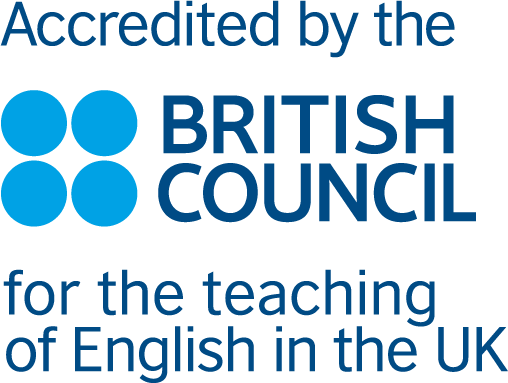
Safeguarding Policy
ABC Schools Safeguarding Policy
Key Contacts for Safeguarding
Designated Safeguarding Lead – Mei Delmonte
Deputy Designated Safeguarding Lead – Bircan Ay, George Delmonte, Daniel Studholme, Meriem Jouti
Safeguarding and Welfare Officers – Aki Manabe and Nozomi Ide
Key Contacts in the London Borough of Camden
In an urgent situation, such as if a child is in immediate danger, you can call 03000 41 11 11. If the call is urgent and outside of office hours, you can call 03000 41 91 91.
Multi Agency Safeguarding Hub (MASH)
Email: accesstochildrensservices@westminster.gov.uk
Phone: 0207 641 4000
Golders Green College and ABC School of English, also known as GG Colleges, is committed to ensuring the safety of everyone involved in its activities. This includes the duty of care to safeguard children, young people and adults at risk during interactions relating to classes and social activities, irrespective of duration or location.
This policy applies to all staff, students and volunteers who may be working with children, young people or vulnerable adults during school hours in any of our three locations – at Golders Green, Oxford Street and Covent Garden (ABC School of English).
What is safeguarding?
Safeguarding and promoting the welfare of young learners and vulnerable learners means:
- Protection from maltreatment
- Prevention of impairment to mental and physical health or development
- Ensuring that the learning environment is safe
- Taking action to enable learners to have the best outcomes
Child protection is a part of safeguarding and refers to the prevention of suffering or likelihood of suffering from significant harm. It includes procedures about the correct response to concerns about safeguarding.
Safeguarding Young Learners and Vulnerable People
- All staff must work together to create a safe learning environment for Young Learners and vulnerable people.
- The College encourages all learners to be healthy, stay safe, enjoy and achieve, make a positive contribution and achieve economic well being.
- The school operates safer recruitment policies. All teachers and reception staff are DBS (enhanced) checked. DBS documentation is applied for permanent staff.
- In order for ABC School of English (GG Colleges) to fulfil its Prevent duty, it is essential that staff are able to identify learners who may be vulnerable to radicalisation, and know what to do when they are identified. All staff are also required to complete the basic Prevent awareness training provided by the UK government.
A summary of our code of conduct
The college aims to both support and protect staff and students. Our code of conduct is written to set clear boundaries, standards and guidelines on what is expected of our staff at all times in order to ensure a safe, warm and welcoming environment. It applies to all staff employed or contracted by the college. A detailed description of our code of conduct can be found in our main Safeguarding Policy, which also describes the procedure to be followed where suspicions or allegations of abuse have been raised.
As a general rule, we expect all staff to treat students, especially those under 18, the same way they would expect their own family members to be treated if in a foreign environment, in which they are likely to be more vulnerable and lacking in local language and cultural norms. All staff must be committed to:
- Professional conduct at all times
- Treating everyone but particularly U18s and adults at risk with respect and dignity
- Always taking time to listen to what a student is saying
- Recognising and valuing the unique contribution each individual can make
- Encouraging and praising students
U18s and vulnerable people in the classroom
All students are expected to attend classes and arrive on time every day. Students between 16 and 17 are required to sign in at Reception before going to their classes. Attendance is taken separately in closed group classes. Where any under 18s has not signed in or had their attendance marked by the time classes are to begin, a Welfare Officer must be informed and appropriate action taken.
As part of our safeguarding ethos, teachers need to ensure U18s are comfortable and integrating well. Part of this will rely on the material and subjects chosen by the teacher for class delivery. It is the teacher’s responsibility to make sure that material chosen – especially authentic material – is appropriate for all the ages and nationalities in the class.
Closed groups of U18s
From time to time there may be classes consisting of only U18s. These are usually groups with their own Group Leaders from their country of origin. Prior to the arrival of such groups at the college all Group Leaders will have been sent and signed the Group Leader Handbook detailing their responsibilities. On arrival, the Designated Safeguarding Lead will introduce themselves to the group and an exchange of contact numbers will take place so that Leaders and the DSL can communicate with each other.
One-to-one contact with U18s and vulnerable people
All staff members should avoid a situation where they are left alone in an enclosed space with an U18. If a confidential meeting is necessary, it should be conducted in a room with an open door, close to other staff members. If appropriate, another staff member should be brought into the meeting.
Disclosure from an U18 – what you should do
All staff must be prepared to listen to a disclosure from an U18 or vulnerable person as they are likely to choose the person they feel most comfortable with and this will not necessarily be part of the safeguarding team. If an U18 or vulnerable person chooses to disclose an allegation of abuse to a member of staff, they must follow these key steps.
| Receive |
|
| Reassure |
|
| React |
|
Record |
|
Remember |
|
Dealing with a disclosure can be stressful but there are some DON’Ts that you must remember:
- Don’t refuse to listen or say that you will talk to them later.
- Don’t over-react.
- Don’t be in a room on your own with the student with the door shut.
- Don’t show worry or concern.
- Don’t put words in their mouths.
- Don’t make comments.
- Don’t ask leading questions.
- Don’t promise confidentiality.
- Don’t leave the student alone after they have disclosed. If you need to leave the office, ask another member of staff to sit with them as a reassuring presence.
- Don’t tell any of your colleagues other than members of the safeguarding team.
Once a statement has been collected from a student, further questioning should be avoided apart from important clarification of factual detail.
The Principal and the DSL will meet as soon as possible to consider an appropriate course of action in response to the information disclosed by the student and will consider any other relevant information. The DSL will decide if it is appropriate to involve other staff members and also whether to inform the student’s parents. There may be no need to take further action in which case, this should be recorded in writing.
There may be further action taken that involves contacting the local authority or police.
The safeguarding team will ensure that accurate records are kept of reported incidents.
Confidentiality will be maintained throughout the reporting and record keeping process.
Annual Safeguarding review of policy
At the beginning of each year, the college conducts an overview of what has happened in safeguarding during the previous 12 months. It does not list individual names or identifying details. The overview will take into account the following:
- The number of concerns raised and dealt with
- If any patterns have emerged
- How effective safeguarding strategies have been.
- If any major safeguarding issues have come up
- Records of training carried out and any changes made to training procedures.
- Any changes to the safeguarding team or structure
- Any feedback from staff/students regarding safeguarding awareness
- Any areas of weakness noted
- If any new initiatives should be considered or implemented over the coming year
A meeting is held with the safeguarding team and teachers to discuss ways to make improvements.
Training
The DSL has overall responsibility for ensuring that all adults in the organisation have training to the appropriate level. Training must take place before any U18 comes into the care of an adult. The level of training provided for our staff is as follows:
| Role | Level of Training | Refreshed |
|---|---|---|
| DSL and ADSL | Level 3 Specialist Safeguarding | Every 2 years (externally) |
| Welfare Officers | Level 2 Advanced Safeguarding | Every 2 years (externally) |
| Social Activity Officers | Social programme and Safeguarding course provided by English UK or Level 2 Advanced Safeguarding | Every 2 years (externally) |
| All Teachers | Level 1 Basic Awareness training provided by English UK. This is done through the British Council online and then in face-to-face teachers’ meeting with a member of the safeguarding team trained to Level 3. | Annually online and face-to-face (internally) |
Safer Recruitment
Safe Recruitment Overview
The school is committed to safer recruitment for all staff positions, permanent and freelance for any staff that may have unsupervised contact with an U18 or vulnerable person. This includes school staff, social activity leaders and other providers such as transport companies.
Welfare for U18s
Risk Assessments
To ensure the safety of our staff and students, a comprehensive range of risk assessments are carried out. All risk assessments are reviewed annually and where relevant (e.g., social programme activities), they are reviewed before each event to make sure they are still relevant. Please see our risk Assessment Policy for further details.
Specific areas for analysis of risk include:
- travelling to and from the school
- travelling between their accommodation and school
- in the school building
- educational activities
- off-site activities
- the social programme
- free time
- unsupervised time
Before engaging in any activity with students, teachers and social programme leaders must read the relevant risk assessment, adapt it to any specific need for this particular group and then sign it to say they have read and understood it. The risk assessment must then be signed by a Welfare Officer and filed appropriately.
The fact that an activity has been risk assessed does not mean that there are no risks to students. However, potential risks can be significantly reduced by following the safety provisions outlined in the risk assessment.
Unsupervised time
While every attempt is made to engage the U18s in school-led activities, it is recognised that there may be time when the U18s will be unsupervised. The following provisions apply to 16-18 at the school and are in place to help keep them safe during unsupervised or free time:
- U18s must participate in all class trips that are during class time.
- If an U18 is late for class (at the beginning of the day or after a break), then the Registrar or Welfare Officer must immediately contact the host family to follow up.
- Host families must immediately contact the school’s emergency number if an U18 misses their curfew.
- All students are issued with a card with the school’s emergency number. On day one of an U18’s course, they are asked to programme the number into the phone and call it to check the number is correct.
Missing Students
Procedures for what to do in the event of a missing student are outlined in:
- Procedure for dealing with missing students.
- Social programme – guidelines for group and activity leaders
- Airport arrivals procedures and policy
- The school Critical Incident Plan
- The procedures cover what to do in the event of a missing student in any eventuality including airport arrival, accommodation, school and social activities.
All U18 students are required to give us their emergency contact details before they arrive in the UK for their course to start. They need to provide the following information:
- Name of emergency contact
- Telephone number and email address of emergency contact
- Relationship to the student
- Approximate level of English of the emergency contact
- Spoken language(s) of the emergency contact.
Welfare provision
Our Registrars are also our Welfare Officers and members of the Safeguarding Team who will meet all students enrolled at the college. There is always a member of the safeguarding team at the school. Our teams are made up of one man and two women so a student can choose the person they feel most comfortable talking to.
In order to prepare U18s for life in the school & London during their stay and to have the best experience possible, the following procedures are in place:
- A copy of the U18s Handbook is available on the website and is sent with the booking confirmation.
- A day one orientation for U18s is organised and led by a member of the safeguarding team. The orientation covers all aspects of their stay and the areas that are specific to U18s.
- U18s are highlighted in the school register so teachers who have U18s in their class can identify them easily.
- A safeguarding poster is on the noticeboard in every classroom and in the staff areas to remind everyone of their responsibilities in Duty of Care.
- All staff are aware of who the welfare and safeguarding team are and know to refer any concerns, however small, to them to take over. The welfare team member will then feedback to the person who brought up the worry so that everyone can be reassured that it is being dealt with.
First aid provision
The school has a comprehensive First Aid Policy in place and ensures that at least 2 appropriately trained physical or medical first aiders are available. First aid training is updated regularly, and the training schedule is kept up to date by the Senior Registrar. The names and photos of the trained first aiders are on the noticeboard in Reception which is pointed out as part of the induction.
Where required a member of staff will accompany all U18s to medical appointments and to the pharmacy to pick up medication.
The DSL is trained in Mental Health First Aid.
All staff should be aware that mental health problems can, in some cases be an indicator that a child has suffered or is a risk of suffering abuse, neglect or exploitation.
It is important to recognise whilst providing support that unless trained appropriately, staff are not mental health experts and should not be diagnosing conditions. The mental health first aid role is to provide information for staff and students to feel comfortable in asking for help or providing an environment where the suggestion of help may be made through a considered and guided approach such as with mental health first aiders.
Staff are well placed to observe students day-to-day and identify those whose behaviour suggests that they may be experiencing a mental health problem or be at risk of developing one.
If staff have a mental health concern about a student that is also a safeguarding concern, immediate action should be taken, following procedures and speaking to the DSL.
Code of Conduct for U18s
For everyone to be very clear on acceptable standards of behaviour a student code of conduct is included in the U18 Handbook and covered in the day 1 inductions. This includes information on alcohol and tobacco laws in the UK and makes it clear that:
- The legal age to buy alcohol and tobacco products in the UK is 18
- Students under the age of 18 are not permitted to smoke or vape while under the care of the school.
- Students under the age of 18 are not permitted to drink alcohol at any time.
- Students under the age of 18 are not permitted to join a social activity which has not been deemed age appropriate.
- A student turning 18 whilst on the course will adhere to the rules as if they were still U18.
GDPR and U18s
U18s need particular protection when collecting and processing their personal data because they may be less aware of the risks involved. U18s have the same rights as adults over their personal data. These include the rights to access their personal data; request rectification; object to processing and have their personal data erased. An individual’s right to erasure is particularly relevant if they gave their consent to processing when they were a child. All our student data (adult and U18) is processed and stored under strict GDPR guidelines. In addition to the consent of the U18, parental consent is required.
Contextual Safeguarding
We have strict protocols in place to ensure the safety of our U18s on school premises and activities. We also recognise that we have a duty of care to our students when they are unsupervised and ensure we have risk assessments conducted for, and advice for all U18s on areas such as:
- U18s keeping safe in unsupervised time
- Travelling to and from school each day
- Who to contact if you have an emergency
- Keeping safe at events in central London
Safeguarding U18s and vulnerable people on the social programme
Events on social programmes can take place during the afternoon, the evening or at weekends. To safeguard all our students but particularly those U18 or vulnerable people, the following procedures and guidelines must be followed:
- A relevant risk assessment must be completed by the activity leader and signed off as complete by a Welfare Officer. Each activity will need a tailored risk assessment, so it is not appropriate to cut and paste from another document. However, many social programme activities fall into similar categories and so a template can be used as a starting point.
- The social programme organiser needs to be sure that the ratio of staff to students is adhered to, especially if an U18 student is joining at any stage. The ratios are 1:15 as a minimum for social programme activities unless otherwise agreed with the DSL.
- For any on-site activities, make sure that the room is fit for purpose and any obstacles have been removed.
- For all social programme activities, the leader must have a complete list of all names and phone numbers for everyone joining the activity. A copy of this list must be left with the risk assessment in the school office and another copy must go with the activity leader.
- Activity leaders must be able to identify all U18s by sight and know all their names.
- The activity leader must take a school phone with them and make sure that every student has a note of the number in case they get separated from the group.
- On excursions where students have time to themselves, no U18 can be left alone. Students must always stay in groups of at least 3. The activity leader must ensure that the U18 student has their number and the school emergency number before leaving the school and that the student’s phone has sufficient charge on it in case of emergencies.
- When using public transport, the activity leader must make sure that all students stay together and that no one is left behind. The activity leader must make it clear to students what procedure to follow in the event this happens.
- It is the responsibility of the activity leader to check the environment they are taking the group to as part of the risk assessment process. They should consider potential changes including heavy traffic, sporting events or public holidays etc.
- Ensure that all students know where the meeting point is and what time they are due to be there after their free time is over.
- Activity leaders are encouraged to take photos on excursions. Particular attention needs to be taken to safeguarding if there are U18s on the trip. While all students need to give their consent to their image being taken and used for publicity, photos of U18s can only be used with their consent AND their parent/guardian’s consent. The Activity leader should have this information as part of the risk assessment preparation.
Parental Consent
A Parental/Guardian agreement for students under 18 to study with ABC School of English (GG Colleges) is emailed at the time of booking and must be completed before the course starts. This explains what the rules of the course are. No student under 18 can join a course without a signed parental consent form.
Parental consent forms will be stored on the U18s student account and information distributed to the safeguarding team as appropriate.
Person Responsible for the policy: Group Academic Director
Date: April 2025
Review date: April 2026



